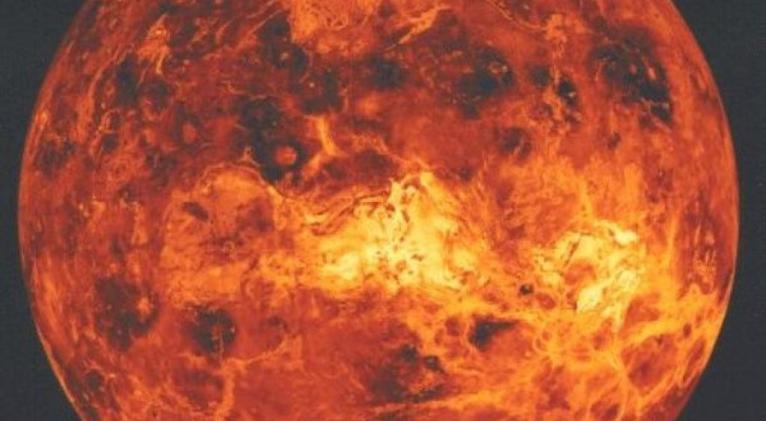Climate Change Could Turn Earth into Venus: Stephen Hawking
especiales

The British physicist said Venus was once an inhabitable Earth-like planet, but greenhouse gases raised its surface temperatures to boiling point – and beyond.
In the second episode of his new series "Stephen Hawking's Favorite Places," the British physicist warns Earth could soon become as hot as Venus if action to halt climate change is not taken immediately.
RELATED: Stephen Hawking Says AI Can 'Outperform Humans'
Hawking says Venus was once an Earth-like planet with surface water, mild temperatures and an appropiate atmosphere. According to NASA, Venus was an inhabitable planet for a period of about two billion years as recently as four billion years ago.
Now temperatues on Venus reach 250°C with powerful 300mph winds. Hawking says a greenhouse effect burned the planet's oceans and lands, and that something similar could happen right here on Earth if climate change continues unabated.
"Next time you meet a climate-change denier, tell them to take a trip to Venus; I will pay the fare," says the physicist in his show.
Hawking has severely criticized Trump's decision last year to pull the United States out of the Paris Agreement. The US president has stated before that this climate pact puts the US economy at a disadvantage, even denying that climate change is a real thing and stating that he cares not for the citizens of Paris, but only those of the United States.
The Paris climate agreement is an international effort to reduce greenhouse gas emissions and was signed by 195 nations in 2015.
In the Starmus Festival last year, Hawking said Trump's decision was "the most serious and wrong decision on climate change this world has seen." He also said that the human race would have to colonize outer space in the next 200 to 500 years if we are to survive as species.
Since then, Hawking has stated multiple times his hopes for a new era of space exploration, in which nations unite toward a single goal.
"It is clear we are entering a new space age. We are standing at the threshold of a new era. Human colonisation and other planets is no longer science fiction, it can be science fact."
The scientist is currently working on Breakthrough Starshot, a project that could send "a ground-based light beamer pushing ultra-light nanocrafts – miniature space probes attached to lightsails – to speeds of up to 100 million miles an hour" to Alpha Centauri, the closest star system, in just 20 years.
"Stephen Hawking's Favorite Places" won an Emmy last year and is available for streaming at Curiosity Stream.













Add new comment